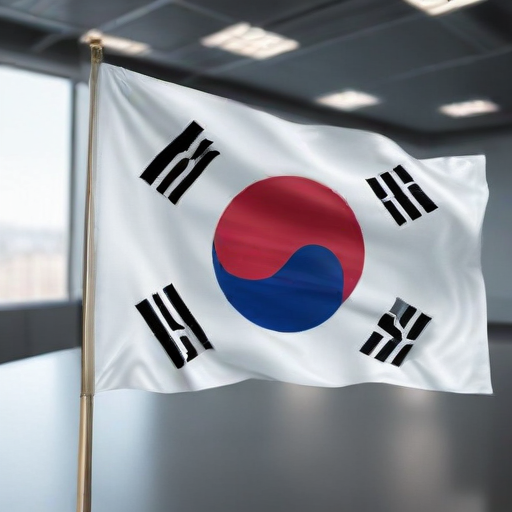South Korea is uniquely positioned as one of the few economies experiencing a productivity increase driven by artificial intelligence, according to analysts at Bank of America. The country has seen a remarkable 50% surge in AI-related exports over the past year, largely due to its robust semiconductor industry, which constitutes 17% of the nation’s total exports.
The report suggests that South Korea’s significant investments in AI research and development, coupled with a growing pool of AI-related patents, will likely strengthen its standing in the global market for AI technology. This positions South Korea as a frontrunner in adopting AI advancements, potentially driving further economic growth.
However, this optimistic outlook is tempered by geopolitical challenges, specifically rising tensions between the U.S. and China concerning semiconductor trade. Bank of America analysts caution that if these geopolitical strains escalate, they could disrupt the supply chain for semiconductors, a critical component of South Korea’s economy. Notably, over 30% of South Korea’s chip exports were directed to China and Hong Kong in 2023, with similar figures for exports to the United States.
The analysts point out that enhanced restrictions on exports of advanced chips to China—should the U.S. decide to impose them—could severely impact the memory semiconductor sector in South Korea. Furthermore, local manufacturers rely on China for certain components and equipment essential for chip production, heightening the risk of supply chain disruptions in the face of escalated tensions.
The U.S. has reportedly urged South Korea to limit exports of chipmaking technology to China. This request is under consideration by South Korean officials, who are mindful of the potential fallout on major domestic firms like Samsung and SK Hynix, both of which have substantial operations in China.
Additionally, the Biden administration is contemplating applying a foreign direct product rule on allied countries that persist in supplying chipmaking tools and equipment to China. This would restrict the export of any product manufactured with a certain percentage of U.S. intellectual property.
In summary, South Korea stands at a pivotal crossroads between harnessing the benefits of AI advancements and navigating the complexities of global trade tensions. While analysts project continued growth in AI exports, the potential for geopolitical conflict poses a considerable risk to this trajectory. Nevertheless, there remains hope that through strategic partnerships and innovation, South Korea can maintain its leadership role in the AI sector, mitigating some of the external pressures it faces.
